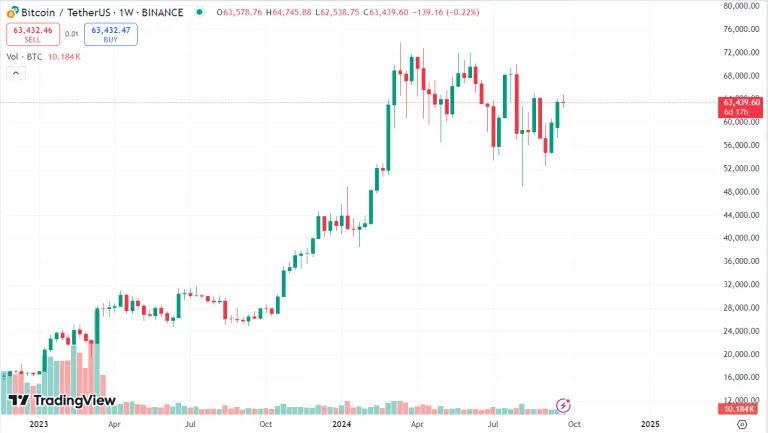A Look At Crypto & Forex

Forex and crypto markets are both markets where people can trade assets. Despite the similarities that these financial markets have in terms of how they trade, these markets have differences that people need to pay attention to in order to start doing business in them. Differences in terms of the type of actors in these markets, their size, market structure, access to assets, market fluctuations and differences in terms of trade in these markets are some of the things that can be mentioned. In this post, I will discuss the difference between forex and crypto.
Forex market participants are groups such as central banks, commercial banks, investment funds, companies, brokerages and traders. Each of these groups has a role in the forex market. For example, commercial banks are one of the main players in this market that facilitate trading of currency pairs in this market.
Central banks are also other players in this market. But central banks do not enter the forex market to make a profit. Rather, they enter this market to stabilize the national exchange rate, which has a great impact on the strength of the respective currency compared to other currencies.
On the other hand, crypto market participants can be divided into the following three categories:
- Cryptocurrency Exchanges: Cryptocurrency exchanges are digital markets that allow people to buy and sell cryptocurrencies.
- Miners: Miners are individuals and companies that validate and record transactions in the blockchain.
- Traders: Traders try to profit from price fluctuations in these markets. Therefore, they are always buying and selling cryptocurrencies.
Forex is a market that allows people to access and exchange currency pairs of different countries. In the forex market, it is possible to convert one currency into the currencies of other countries. When you operate in the forex market, it is possible for you to buy and sell one currency with another currency at an agreed rate.
On the other hand, crypto is abbreviated to the word cryptocurrency and it means a digital currency whose transactions are validated and recorded in decentralized platforms. In other words, cryptocurrencies are non-physical currencies, but they can be used like traditional currencies.
Most digital currencies store their transactions on the blockchain to increase operational transparency. This issue increases the security in conducting related transactions, and on the other hand, by eliminating intermediary institutions, it reduces fees.
The forex market is a large market that consists of financial transactions related to market participants. Transactions related to companies, banks, investors, financial funds and traders operating in this market are all located in this market.
On the other hand, the market of digital currencies is much smaller than the forex market. Despite this, with the development of blockchain technology, this market has grown well. The market value of digital currencies reached 1.5 trillion dollars in 2021.
Forex and digital currency markets are both based on supply and demand. These markets allow their activists to operate in this market without the interference of government institutions and based on the agreement between the buyer and the seller.
The structures of the digital currency market and the forex market are both designed in a decentralized manner. This means that centralized institutions such as the government are not involved in them. This issue has caused some people to consider the lack of control by centralized institutions as an advantage for these markets, especially for the digital currency market.
In the structural comparison between these two markets, it can be pointed out that digital currencies in the relevant market exist only in virtual space and are stored on blockchain platforms. Therefore, digital currency transactions happen only between cryptocurrency wallets and their validation is also done by miners.
On the other hand, the forex market operates within the framework of regulated financial markets. But the cryptocurrency market has less formal structures. This makes this market the focus of criminal activities.
The forex market has provided easier access for its users and activists than the digital currency market. For example, there are many forex brokers that can provide users with the possibility of trading different currency pairs.
The digital currency market is less liquid. But it is important to note that unlike the limited number of currency pairs that are traded in the forex market, the number of digital currencies that can be traded in digital currency exchanges is very large. This makes it very difficult to monitor and track the entire digital currency market.
Both the forex and digital currency markets are highly volatile. But the volatility of the digital currency market is greater than the volatility of the forex market. This causes the price of digital assets to fluctuate wildly with the smallest impactful events on a daily basis.
Trading currency pairs in the forex market also experience fluctuations in lower price ranges during the day. The volatility in the forex market, which has a large daily trading volume, attracts many traders to it.
Trading in forex and crypto markets are two popular options for investing in financial markets. Digital currency trading includes buying and selling cryptocurrencies such as Bitcoin and Ethereum and other cryptocurrencies in this market. On the other hand, trading in the forex market includes buying and selling various currencies in this market.
Both trading options in the forex market and trading in the digital currency market have high benefits and high risks.
Cryptocurrency trading means buying and selling digital assets in centralized and decentralized exchanges. Cryptocurrencies are digital tokens that use cryptography to increase transaction security and control balance. Unlike common currencies in countries, cryptocurrencies are not under the supervision of the government and central banks, and their value is determined only according to the amount of supply and demand for them.
There are two common options for trading digital currencies. Trade through centralized exchanges and trade through decentralized exchanges. Centralized exchanges are trading platforms for buying and selling digital currencies. These platforms act as intermediaries for cryptocurrency transactions, connecting buyers of digital assets to sellers.
On the other hand, they are controlled by a central institution like other traditional financial institutions. Centralized exchanges allow you to buy cryptocurrency in your country's currency. In addition, they provide people with other facilities such as spot, option and futures transactions.

Decentralized exchanges are platforms that allow their users to make direct transactions. Blockchain technology and smart contracts are used in these platforms to conduct transactions between buyers and sellers. Decentralized exchanges give traders complete control over transactions, and users can have full control over their assets by directly connecting their cryptocurrency wallets to these platforms. Therefore, these platforms are more secure than centralized exchanges.
Brokerages allow traders to operate in the forex market. Some of them support all types of transactions in this market such as spot, forward and futures. These brokers provide these services using Forex CFDs.
Forex CFDs are contracts that are used to trade on the price difference of currency pairs. Traders make these transactions according to the price difference between the opening and closing time of trading positions.
The issue in trading Forex CFDs is that the physical ownership of the respective currencies is not transferred to the traders at the time of trading. The way to earn profit from these transactions is that when the trading position of the traders is in the direction of the relevant trend, they profit from these transactions, and if their prediction is wrong in the direction of the market trend, they lose in the relevant transaction.
Forex CFDs are leveraged derivatives. The presence of leverage in this market allows traders to trade more volumes by paying an initial amount called margin. In this case, when traders use leverage to make a transaction, the amount of their profit and loss is considered according to the amount of leverage used.
Therefore, the presence of leverage in transactions increases the amount of profit in the case of correct prediction, and increases the amount of loss when the prediction is incorrect. Therefore, traders need to use proper capital and risk management techniques when trading so that the amount of possible losses does not exceed their margin.
Therefore, it is necessary to always pay attention to the benefits and risks related to transactions using leverage and always remember to enter into transactions with only a certain amount of your capital that you can afford to lose in the financial market.
Forex and digital currency markets can be regulated by various bodies. The forex market consists of a large number of transactions between market participants such as central banks and investment funds and is fully regulated.
For example, in a country like England, forex brokers are regulated by the FCA. This institution, which operates under the supervision of the Central Bank of England, is responsible for ensuring that forex brokers always pay attention to the interests of their users in this market and put it as a priority, with relevant investigations and legislation.
In order for people to be able to trade in the financial markets such as the forex market or the digital currency market, in addition to the need to be familiar with the fundamental factors affecting the price of assets, they need to be familiar with the concepts related to technical analysis and by performing relevant exercises, they need to use their skills. Increase this analysis in the desired markets.
In the case of the crypto market, the history of the fluctuations of each cryptocurrency is in the relevant chart, and traders can predict the future price of the cryptocurrency by examining and analyzing the relevant price history using technical analysis. In the forex market, the strengthening and weakening of countries' currencies relative to each other is displayed in the form of trading currency pairs in the chart.
In this market, traders can use similar rules in technical analysis to predict future trends in the relevant market.
